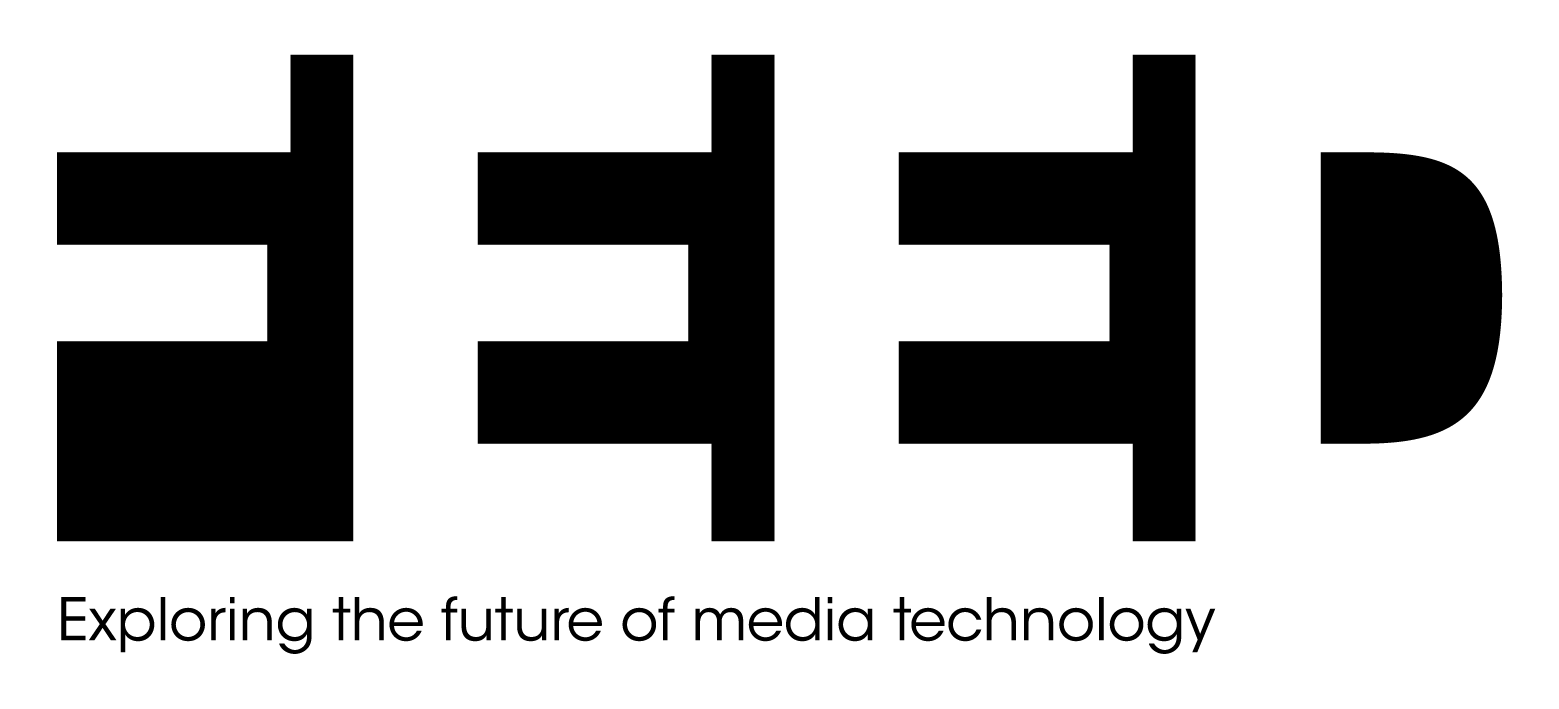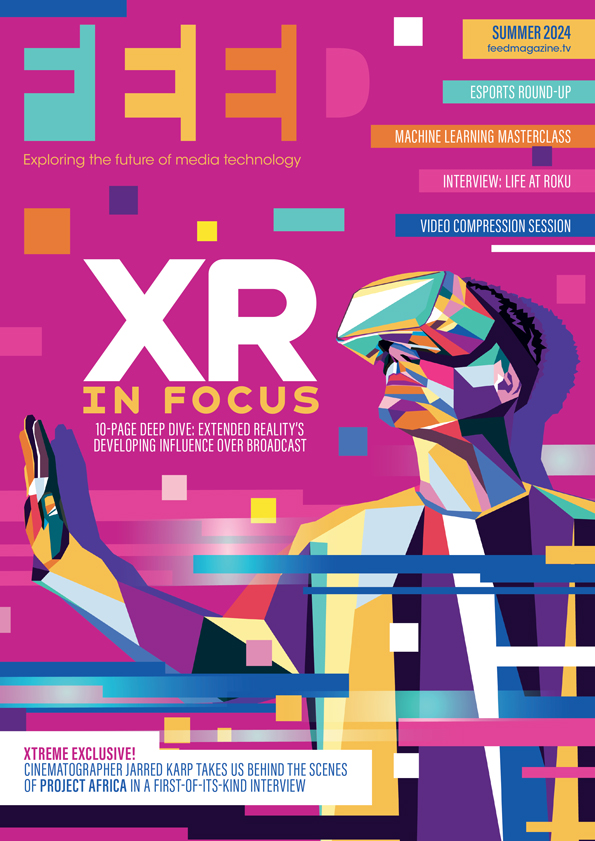Renard Jenkins: “I want to see an interwoven content universe”

Posted on Jul 14, 2020 by FEED Staff
From CNN to PBS, and now WarnerMedia, Renard Jenkins has helped build world-class infrastructures for world-class TV brands. We talk to him about his career, new possibilities in the cloud and his vision for a better media industry
FEED: How did you get started in broadcast tech?
Renard Jenkins: Well, it’s funny you should ask. I actually went to college to be a marine biologist. I still love the subject to this day. I’ve always been interested in science and for me technology was just a natural extension for my curiosity.
My mother will tell you that I would take apart anything that I could get my hands on while growing up. My greatest thrill was being able to put things back together and have them work properly. She will also tell you that it was very rare to find me without a camera in my hand and my little red plastic transistor radio in my pocket.
While in college, I often found myself documenting a lot of our scientific projects and expeditions. Mainly because I was the only one who knew how to operate the equipment but also because I had developed an eye for photography. This led to me being offered freelance jobs at the local television and radio stations while I was still in college. That gave me exposure to broadcast equipment and I was pretty much hooked from that point on. I changed my major right before my senior year and then dove head first into film, television, radio and music production and technology.
I’ve never looked back. From there, I was recruited into what was then the Turner broadcasting family. It was a great time to be at CNN, because it was a young, scrappy company that was not afraid to take risks. It was there I had the opportunity to get involved in R&D and then work with some of the greatest minds throughout the industry. During my tenure there I had access to all of the top broadcast tech companies, manufacturers and vendors. I beta tested so much gear back then and was so pleased to see my feedback taken seriously. That sparked the fire for constant learning that still burns in me today. The ability to innovate and grow people are the things I enjoy most about my career. I get to do both in my new role.

FEED: How did you come to WarnerMedia and what are your responsibilities there?
Renard Jenkins: The decision to leave my former employer and join WarnerMedia was probably one of the hardest decisions I’ve had to make in my career. However, being offered this position and ultimately accepting it has turned out to be one of the most exciting adventures in my career thus far. My job entails leading the content transmission team, which is responsible for content acquisition and its associated technologies for the WarnerMedia portfolio within North America. We also support sports, entertainment and news bureaus all over the world.
FEED: Can you tell us about your time on the job so far, including how you have dealt with the restrictions imposed by the pandemic?
Renard Jenkins: This has truly been an insane time to shift gears and start a new job. However, it has been extremely exciting. Due to the pandemic, my first large assignment was to figure out how to move my entire staff (two separate locations) from fully on-site and hardware dependent to fully remote and cloud-based without a degradation in service. The expectation was that it would take us about a year to accomplish this task. However, my managers and our incredible staff accomplished the task within two weeks. This was largely due to a heavily integrated interdepartmental collaborative environment that allowed us to work very closely with our engineering peers, our software development peers, our transport and compression peers, our brands and with our vendors to create an entirely new way to work in record time. We all worked together to begin designing, implementing and utilising cloud-based tools, remote functionality and various other tools and means to create a secure environment in which to mimic on-site capabilities.
I would take apart anything that I could get my hands on while growing up
FEED: What are some of the big tech challenges at WarnerMedia and how are you and the team solving them?
Renard Jenkins: Well, I will only speak for the content transmission area in which I manage. The biggest challenge in the transmission space right now across the whole industry is legacy platforms that require manual intervention and dependency upon legacy gear and hardware.
Then, of course, that leads to legacy workflows that are primarily limited by their linear design. I am looking at going beyond just a move to the cloud or a move into the IP space. I am leading the charge for us to create a content fabric. I want to create an environment where your content is available upon completion, no matter where you are in the world.
I would like to move transmission beyond pushing and receiving. I want to see it grow into an interwoven content universe where metadata, content and ancillary media-based extensions are seamlessly transmitted and accessed through an agnostic orchestration level. This would allow users to discover, utilise, replace and upgrade content and apps at will with limited work stream interruptions or repercussions.

FEED: How have the lockdowns affected how media companies operate and how do you think it might affect the industry going forward?
Renard Jenkins: I like to look for the silver lining. This has forced the media industry to accelerate long-standing cloud, SaaS, automation and remote functionality projects that were either shelved or reprioritised because they felt they had time. Now that they’ve proved to themselves they can work in a distributed environment, I believe we will see more media companies functioning more efficiently in the near future. I also believe this makes media companies more flexible, agile and relevant. A by-product of these discoveries is that companies have proven they can work from anywhere in the world. This will help attract and retain top talent.
FEED: How have you been working with cloud technology and how do you think cloud will affect media creation in the future?
Renard Jenkins: Cloud technology has been crucial to our success in moving the staff to fully remote functionality. The use of cloud tech helped us create a multiviewer experience that provided ease of use and confidence for our staffers, operators and peers all over the world.
As for the future of media creation and the cloud, I think we are already here. Sure, tools need to continue to evolve and there is much further we can take it, but I feel things are moving in the right direction. I don’t think there are any media creation companies out there today that do not at least have a small cloud presence by now.
FEED: You have had a successful career as an African American working at the top end of media technology, which is rarer than it should be. What is your assessment of the opportunities available for black people in technology?
Renard Jenkins: You know, like everyone, I would like to be judged simply for my work. However, and unfortunately, that is not the world we live in today – but it does remain my hope for the very near future. I feel as an industry, we can do better and I say “we” because I am passionately invested in creating a pathway to leadership for people of colour in this industry. Too often, in my career, I have been the first or in many cases the only. I want to see that change and I am committed to being a part of that change. The technology gap for people of colour around the globe has been documented and widely communicated. I want to work with my peers in media and tech companies to close that gap. By creating a base layer of knowledge and interest at the elementary and secondary grade levels in underserved areas, you create a future foundation for an intelligent and diverse workforce. That’s where a part of the change starts, but this isn’t an issue that can be solved from the bottom up. It has to be addressed bi-directionally.
Therefore, in regards to positions of authority, companies have to be willing to cast a wider net externally and internally. There is so much untapped talent in companies today. Companies have to invest in educating its current workforce across the board through programmes and courses that challenge status quo thinking and comfort-based selections. There are so many individuals of colour who could play a significant role in the tech space. Unfortunately for our industry, many get frustrated and leave the industry all together. We can change that. Managers have to be trained and incentivised to look beyond the usual candidates when hiring. The same goes for recruiters and the C-suite. They have to look beyond the usual pool in order to see the potential of a different and inclusive workforce.

FEED: What have you seen in your career that has been done well and worked well and what ideas do you have about how the media tech industry might do better?
Renard Jenkins: I am very blessed and have been throughout my career to have advocates who believed in my talent and opened doors for me. I believe what works well is when influential individuals are not afraid to invite someone to the table who doesn’t look, act or think like them. When they aren’t afraid to clear a path for and support people of colour being a real part of the conversation from the start – that’s when you see change.
I believe that when people get beyond discomfort and begin to embrace it, we will see change. You don’t grow without some pain and our industry is going to have to go through this in order to do better. I feel very strongly that companies need to invest in creating opportunities for people of colour that give them the space to thrive.
It is not just good enough to hire a few here and there. However, it is imperative that they are nurtured and supported once they get the job.
I am proud to be working at WarnerMedia, because they have publicly stated that they are not only willing to do the work in regards to equity and inclusion, but they are committed to doing it. Therein lies the difference between intent, action and success.
FEED: What kind of technology do you wish someone would invent to make your life easier?
Renard Jenkins: Currently I am working on a device (or robot if you will) that will deliver an electric shock to anyone’s spine who uses the term AI when what they are really talking about is machine learning. If someone wants to help me with that, I am willing to entertain all interested parties.
In all seriousness, I would love it if someone could invent technology that helps make the automated creation of unbiased modelling for machine learning easier. I think the complexity associated with it and the relatively small community of skilled resources working on it has limited its adoption. In my opinion, the potential for something like that in the media and content space is enormous.
FEED: What are you watching now?
Renard Jenkins: Mainly news and HBO Max to decompress. It streams quite a few of my favourite series. I am catching up on Westworld at the moment. But, to be totally honest, I do more listening to music than anything else. Eric Dolphy and Pharoah Sanders are spinning today.
Managers have to be trained to look beyond the usual candidates when hiring
FEED: And is there anything of special interest to you that we didn’t cover?
Renard Jenkins: The future of content transmission depends on its ability to evolve and adapt to a world that requires immediacy as well as quality. Platforms must be dynamically flexible and agnostic in design and functionality. While IP offers some of what is required, it still has a ways to go in regards to live production and event needs. If a product can assure accurate FEC, real-time PTP and reduce latency to milliseconds rather than seconds, we would have something on which we could build real-world production work streams. That’s something I would love to see someone invent.
This article first appeared in the July 2020 issue of FEED magazine.










